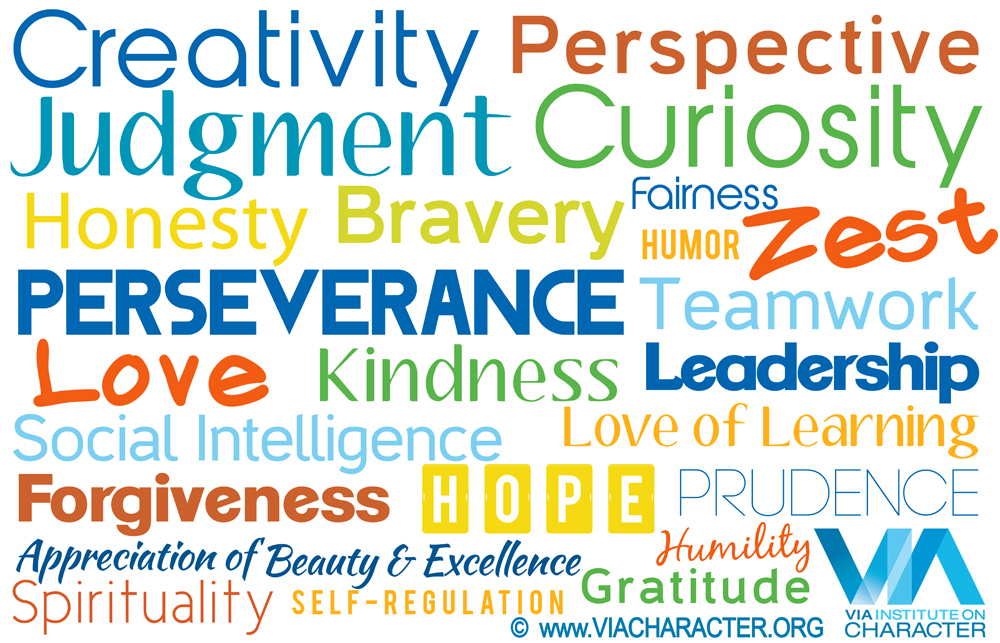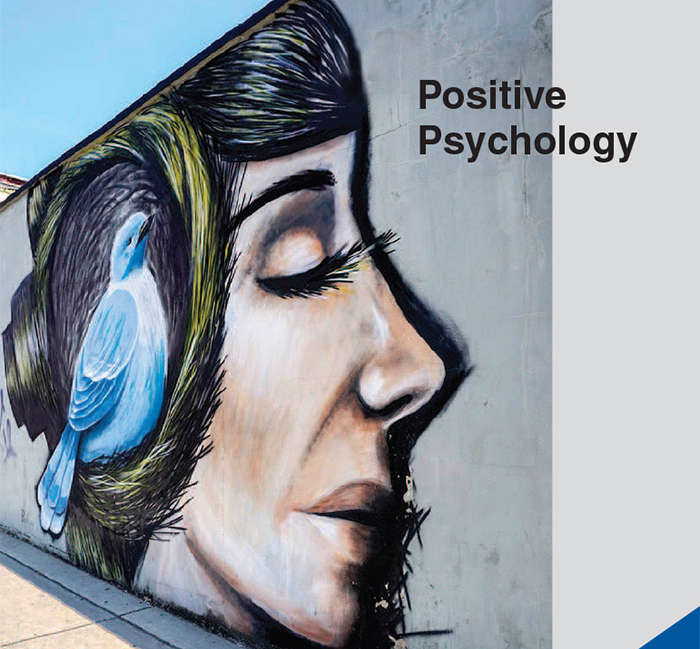Character is the virtue of hard times, Former French president Charles de Gaulle observed. Hard times not only build character but also reveal it. How can we use and build our character when the adversary (COVID-19) is invisible, pervasive and potent – a global pandemic, killing thousands, infecting millions and dramatically altering the daily routine of billions? Over the landscape of time, this challenge, unfortunately, is not a new one. Natural disasters (e.g., earthquakes, floods, tornados), technological catastrophes (e.g., nuclear and hazardous spillovers, plane crashes) or previous pandemics (e.g., SARS, Avian flu, Ebola) are collective calamities that have previously impacted individuals, families and communities. Feeling anxious, irritable, afraid and ambivalent in the wake of this deadly virus makes sense. Tuning in to constant media coverage while being homebound with an altered daily routine, we can easily feel helpless. Furthermore, our daily dose of social nutrition can easily be replaced with unprocessed feelings of worry and anxiety. Inadvertently, this pandemic is also an opportunity for us to build character. Building character, while people are in pain and dying sounds strangely ironic. Crisis, not just calm, offers us unique opportunities to hone our skills which use our best resources. Generations before us encountered world wars and revolutions, fascism and slavery, draughts and pandemics with courage, hope, persistence and teamwork.
This is our generation’s opportunity to rise up to the challenge and claim higher ground. Hard times demand hardiness, which comes from galvanizing our individual and collective strengths, not retreating to our weaknesses. Character strengths are traits like attributes with thinking, feeling and behaving aspects. These attributes are morally good for us and for others.
Character strengths such as love, kindness, curiosity, zest and hope are not talent. Talents such as character strengths (e.g., kindness, teamwork, zest) are distinct from talents and abilities. Athletic prowess, photographic memory, perfect pitch, fine dexterity, physical agility, and such constitute talents and abilities. Talents, by and large, are not buildable. Nonetheless, talents benefit from strengths. For example, self-regulation and optimism can improve one’s swimming performance, but these increments tend to be relatively small. To swim like Michael Phelps and run like Usain Bolt, one needs certain physical abilities. Character strengths are valued by every culture. Every culture values kindness, spirituality, gratitude, creativity, and love. While it is hard to build talent, character strengths can be built on even frail foundations and expressed through pragmatic actions. Life situations are context-dependent, complex and unpredictable. We practice and refine our strengths through education, experience and interactions embedded in our social institutions (e.g., school, work, family, community).
Explore your top five character strengths which represent the core of you
Why Strengths? Strengths are personality traits that form the core of what makes us human. Our essence as humans derives from our hope, courage, curiosity, kindness, love, and zest, not our anxiety, worries, ambivalence, anger and sadness. Strengths are our core part of our existence and evolution. Instead of taking them for granted, strengths can be utilized to deal with challenges adaptively, including calamities and disasters of global proportion. For example, by using and enhancing prudence and self-regulation, we can manage our anxiety and worry. Furthermore, using strengths in everyday actions can provide us with a steady dose of well-being to build positive coping mechanisms, thus building our psychological immunity.
From my nearly two-decade experience of trying to integrate the application of character strengths in support of mental health symptoms in clinical settings.
First, we will overcome Coronavirus – sooner or later. However, we will, most likely, not be able to eliminate all future viruses. Instead of being frustrated with sanctions and only following them with resentment, we can reframe the situation and use our strengths of courage (bravery, honesty, perseverance and zest) to act. Courage is not only visible actions of valour but also entails tolerating ambiguity, enduring something we don’t like and delaying gratification. Our small acts of courage can mitigate community risks.
Second, being aware of, and affirming our individual and collective strengths, in addition to our vulnerabilities, can help us to reinterpret and reframe our fears about the pandemic. The worry, anxiety and fear can be contagious and quickly get out of proportion, leading us to take self-centred actions. On the other hand, strengths, such as kindness, hope, citizenship, and perspective, also contagious, can encourage us to take mutually beneficial actions for our families and communities.
Third, using our strengths during a pandemic can provide us with a steady dose of wellbeing in ways our vulnerabilities cannot. Whereas vulnerabilities such as fear, anxiety and panic can paralyze us and threaten our wellbeing, strengths such as creativity, hope and optimism, self-regulation, gratitude, social intelligence, kindness and, most importantly, perspective motivate us to take action and overcome adversity.
Fourth, challenges like a global pandemic allow us to re-examine our priorities in life, reappraise what we value and determine how much time, effort and resources we want to dispense to uphold these values. For example, the Coronavirus pandemic has reminded us about the importance of our physical health. Strengths can help us to transform this awareness into concrete actions such as maintaining good sleep hygiene, eating a healthy and balanced diet, engaging in physical activity, dealing proactively with stressors, and fostering healthy social relationships.
Finally, instead of perceiving isolation as social distance, we can reframe it as physical distance, a necessary sacrifice to curb community transmission. Our repertoire of strengths connects us tangibly to our social networks. For example, applying our strengths of social intelligence, playfulness, humour and kindness in our homes and across our social platforms injects a spirit of wellbeing, lays a foundation of hope and builds individual and collective resilience.
Social distancing might be a misnomer. It gives the impression that we are being asked to socially isolate ourselves, especially at times when we need social support even more. Let’s reconsider social distancing and perceive it as an inconvenient but necessary physical distancing that we can overcome by innovative, interactive digital technologies. Through digital mediums, we can use our strengths, such as social intelligence, kindness, teamwork, love, and altruism, to connect with others, demonstrating that it is our shared responsibility to overcome this challenge.
How do we tap into our social resources, while keeping within the public health recommendations of staying home and maintaining physical distance? The following list attempts to translate the abstract notions of character strengths into concrete and pragmatic actions that do not take a lot of effort and can produce desirable results promptly.
Please note that these tips are intended for individuals and families who are homebound due to COVID-19 pandemic crisis, and presumably not infected. Most if not all actions tap multiple strengths, noted in parenthesis. This article offers 101 easily doable, concrete ways that build on your and others’ strengths in this period of isolation and uncertainty.

101 Strengths-Based Actions to Connect, from a Safe Distance
1. Do simple yoga poses or exercise with your loved ones (zest, teamwork)
2. Ask others what makes them afraid, offer calming words and gestures, without any judgment to decrease their anxiety (social intelligence)
3. Build a house out of recycled material (creativity)
4. Leave a surprise gift in the refrigerator for anyone in the family (love, kindness)
5. Surprise your neighbour with a meal you prepared (kindness)
6. Invite a loved one to a snuggle (love)
7. Discover your quiet joy which does not involve any digital and electronic gadgets (curiosity)
8. Digitally send a book which makes someone smile or laugh (playfulness, humour)
9. Watch a community dance on YouTube and try to dance along (zest, open-mindedness)
10. Engage with your loved ones in an experience that engages all of you together (teamwork)
11. Savour relaxing music while doing a boring chore (appreciation of beauty)
12. If you are at corner shop, call or text one of your neighbours and ask if you can get them something that would like (kindness)
13. Leave chocolate or a favourite food around the house where your child or loved one may find it (kindness)
14. If you walk around the block, just walk and notice what your find pleasing (appreciation of beauty, gratitude)
15. Finish each bite of food before putting the next one in your mouth (self-regulation, gratitude)
16. Challenge children (or your loved ones) to make you laugh uproariously (humour, playfulness)
17. Commit to bringing no harm in thought, word, or action, to any living creature at least once a day (kindness)
18. Start a group of your neighbours on one of the social media platforms to ask how can you help? (kindness, citizenship)
19. Pull more than your weight on a large home project (perseverance, teamwork)
20. Vividly recall a significant event and discuss with your loved ones how it changed you (love)
21. You have two ears and one a mouth; listen twice as much you speak, at least for one hour weekly (social intelligence, perspective)
22. Start an online repository where your friends (and their friends) can share their skills and resources for those who need the help most -for example #caremongering (teamwork)
23. Create your own spiritual or religious ritual or ceremony which can offer you solace in handling the uncertain times. You can invite your significant others, if appropriate (spirituality)
24. Recall vividly the taste of good things you ate in your childhood and share memories with your loved ones (gratitude, love)
25. Lay in your yard on a clear night and watch stars (appreciation of beauty)
26. Rearrange your table or room (appreciation of beauty)
27. Make breakfast for your loved one to celebrate a birthday or an anniversary you couldn’t celebrate (love)
28. Write about a personally witnessed happy event in history (love of learning)
29. Reflect and list things you are grateful for, despite challenging circumstances. Share your gratitude with your loved one, especially if it relates to them (gratitude, social intelligence)
30. Call a friend and listen to the story they want to share, from beginning to end, uninterrupted (social intelligence)
31. Teach or co-learn with your loved one an artistic skill from YouTube or any other relevant online platform (love of learning)
32. Call, text or email someone who may be feeling lonely to let them know that you are thinking of them (love, kindness)
33. Ask questions of your loved one which they will enjoy answering (curiosity)
34. Think and speak well of you and your loved one’s health (hope & optimism)
35. Do something that will put a smile on your loved one’s face (humour, playfulness)
36. Let your loved ones express and behave themselves which shows their real self. Refrain from judgments (authenticity, self-regulation)
37. Do at least one thing what you used to do as a child or at least share a story of what you used to do with your loved ones (love, teamwork)
38. Do something for at least 10 minutes daily which deepens your connection with nature, such as walking, gardening, recycling, listening to birds (appreciation of beauty)
39. Lessen the amount of speed reading, speed cleaning, speed typing, speed browsing the web; instead, do at least one activity daily that is not driven by speed (prudence, self-regulation)
40. Call someone against whom you hold a grudge or awkward hesitation and let this call signal to them that all is good (forgiveness)
41. Give the gift of undivided attention to your significant others (love)
42. Thank even through the smallest of actions those who are working to maintain essential services (gratitude)
43. Break the Cabin Fever of staying indoors by doing vigorous physical activities such as climbing stairs up and down for a specific number of times, playing improvised indoor games such as Ping-Pong and bowling or following exercise classes online, taking a walk or light run around the corner, while keeping safe physical distance (zest, creativity)
44. Leave some room in your stomach when eating (self-regulation)
45. Reminisce about three places you enjoyed most by watching movies or sharing pictures about them with loved one (gratitude)
46. Appreciate and express thanks to front line workers in appropriate ways. For example, Italians and Spaniards have stood on their balconies to applaud daily, others have shared specific acts on social media (gratitude)
47. Create a playlist on Spotify or Youtube or any other streaming device of favourite songs and videos for your significant other or friend (love, creativity)
48. Surprise your loved one by doing a chore for them which they least like to do (love)
49. If you don’t feel like it, don’t follow what most others are doing, but also empathize with them and don’t criticize (open-mindedness)
50. Revive a lost or diminishing art that is pragmatic – e.g., calligraphy, weaving, stitching, knitting, rug-hooking, quilting (creativity)
51. Donate to an organization which is helping those most affected or ones who need help the most (citizenship, kindness)
52. Living together 24/7 may create some tensions; establish rules to agree, and disagree; accept and if possible celebrate imperfections of your relationships (social intelligence, forgiveness)
53. Practice restraint when you hear ideas which bring about strong emotions in you; opt for silence or mindful listening (self-regulation, prudence)
54. Invent a recipe, preferably without buying new ingredients (creativity)
55. Sort and pack for donation clothes you have not worn in the last six months; donate books you’ve read or books others will most likely read (citizenship, kindness)
56. Explore different aromas which influence your mood (appreciation of beauty, savouring)
57. Pay attention to and make a list of small things which improve your day (prudence, humility)
58. Watch a late-night movie with your significant other (love)
59. Watch and/or participate in online virtual concerts (appreciation of beauty, zest)
60. Make a conscious decision to have your next frustration be an opportunity to practice patience (prudence, self-regulation)
61. Decorate your home with framed pictures of family members through the generations (love)
62. Engage others to rearrange your room or a part of your home that would give it a different and fresh look (teamwork, appreciation of beauty)
63. Fit in 5 minutes of exercise or stretching at least five to six times if you work from home (self-regulation)
64. Refrain from sharing information on social media that may create confusion or panic (prudence)
65. Create a visual/artistic/digital collage of family members or loved ones with each part telling their life’s story (love)
66. Learn how others survived similar tough times, explore what worked and what they learned about themselves and others (perspective)
67. Enjoy stroking a dog’s ears or pat a pet or watch a cute animal YouTube (love)
68. Honour and savour the time you can spend with yourself and with your loved ones (gratitude)
69. Surprise your lover by making up the bed with something tucked between the sheets that would make them smile (love)
70. Plant and nurture an herb in your garden or in a pot that you use in cooking or if season permits, clean your yard or plants (appreciation of beauty)
71. Make the most of the time by resting, sharing, and doing something with loved ones that you would otherwise not do (love, social intelligence)
72. Clean and organize a well-stacked home tool kit (prudence)
73. Remind yourself that no matter how problematic people are in your life, there is always a solution; search for a solution with an open mind (open-mindedness, creativity)
74. Learn positive self-messaging techniques and do them regularly (Love of learning, self-regulation)
75. Embrace solitude by reflecting on your actions, their implications and changes you need to make (humility, prudence)
76. Reflect on and make a list of musts, shoulds, oughts that have held you back from solving a problem or trusting others and hence not delegating (critical thinking, teamwork)
77. Sing or play songs that you and your loved ones can enjoy (creativity, teamwork)
78. Play board games that are available in the house such as jeopardy, trivial pursuit and scrabble (playfulness, humour)
79. Set your wearable devices to remind yourself to take a couple of deep breaths and keep your spine natural for good posture a couple of times a day (self-regulation)
80. Enjoy morning coffee or tea watching a sunrise, alone or with a loved one (appreciation of beauty, love)
81. Write a fan letter of gratitude to a health care or front line worker who is working to keep us safe (gratitude)
82. Give a gift of laundry service or do something your neighbour would like to do but is not able to for any number of reasons (kindness, citizenship)
83. Engage (alone or with loved ones) in a spiritual ritual which will help you to connect to something larger than yourself (spirituality)
84. Follow an online exercise, workout class and/or meditate at least 20 minutes everyone, alone or with family member (self-regulation, zest)
85. If someone offends you, make a rule to pause for 30 or 45 seconds before responding. Make sure you take three deep breaths before you respond (self-regulation, open-mindedness)
86. Make a caring kit for a homeless person, drop or deliver now or later when the situation is conducive (kindness)
87. Make a list of things that do not concern you but are important for the community (perspective, open-mindedness)
88. Spend at least 20-30 minutes reading something (e.g., newspaper, book, magazine, blog) that would widen your worldview (love of learning)
89. Accept with grace that negative feelings are an inevitable part of life, and these shall pass, much like most other things do (humility)
90. Assume good intentions of others, especially those who might be treated unfairly just because of their ethnicity, race, language or national origin (fairness, kindness)
91. Ask your loved ones, “let me listen to your feelings”; don’t hesitate to ask for clarification in order to draw them out (social intelligence)
92. Read how-to-books, perhaps ones you have already purchased but had never had time to read and practice skills you want to learn (love of learning)
93. Let global adversities such as pandemics or catastrophic natural disasters redirect your attention to the needs of others rather than only worrying about your self-preservation (humility, citizenship)
94. Memorize phone numbers of your loved one; don’t rely on your smartphone (love of learning)
95. Socialize digitally with optimists (hope & optimism)
96. Reflect and appraise what are the most valuable assets of your life and what is just good enough (gratitude, prudence)
97. Ask for candid feedback from your loved ones or close friends (via digital means). For example: do others feel heard, when they share something important with you?; how is your non-verbal communication? (social intelligence)
98. Cook a meal for someone elderly or sick or who cannot otherwise do so but would enjoy it (citizenship, kindness)
99. Lie flat on your back, with legs relaxed, arms by the sides of your body, palms open and up, toes falling to the sides (corpse pose) and take deep breaths at least five minutes (self-regulation)
100. Shift the tone of a gripe conversation with playful humour and a joke (playfulness, humour)
101. The secret of humour is a surprise – find a way to surprise your loved ones (playfulness, humour).
Additional Ways to Explore and Enhance Your Character Strengths
Table 1: Exercise. Identify Your Top Character Strengths
Please read the following descriptions of 24 character strengths. Select FIVE that form the core of your personality by placing a checkmark in the Top Strengths column. You can explore more about each strength by clicking the embedded hyperlink
| Character Strengths | Description | You Top Strengths | |
| 1 | Creativity & originality | I recognize, emotionally experience, and appreciate the beauty around me and the skill of others. | |
| 2 | Curiosity & openness to experience | I seek out situations where I gain new experiences without getting in my own or other people’s way. | |
| 3 | Open-mindedness & critical thinking | I weigh all aspects objectively in making decisions, including arguments that are in conflict with my convictions. | |
| 4 | Love of learning | I am motivated to acquire new levels of knowledge, or deepen my existing knowledge or skills in a significant way. | |
| 5 | Perspective (wisdom) | I give advice to others by considering different (and relevant) perspectives and using my own experiences and knowledge to clarify the big picture. | |
| 6 | Bravery & valour | I act on my convictions, and I face threats, challenges, difficulties, and pains, despite my doubts and fears. | |
| 7 | Perseverance, persistence & industry | I persist toward my goals despite obstacles, discouragements, or disappointments. | |
| 8 | Integrity, authenticity & honesty | I am honest to myself and to others, I try to present myself and my reactions accurately to each person, and I take responsibility for my actions. | |
| 9 | Vitality, zest, enthusiasm & energy | I feel vital and full of energy, I approach life feeling activated and enthusiastic. | |
| 10 | Love: Capacity to love and be loved | I experience close, loving relationships that are characterized by giving and receiving love, warmth, and caring. | |
| 11 | Kindness & generosity | I am helpful and empathic and regularly do nice favors for others without expecting anything in return. | |
| 12 | Social intelligence | I am aware of and understand my feelings and thoughts, as well as the feelings of those around me. | |
| 13 | Citizenship, teamwork, & loyalty | I am a helpful and contributing group and team member and feel responsible for helping the team reach its goals. | |
| 14 | Fairness, equity & justice | I treat everyone equally and fairly, and give everyone the same chance applying the same rules to everyone. | |
| 15 | Leadership | I take charge and guide groups to meaningful goals and ensure good relations among group members. | |
| 16 | Forgiveness & mercy | I forgive others when they upset me and/or when they behave badly towards me, and I use that information in my future relations with them. | |
| 17 | Humility & modesty | I see my strengths and talents but I am humble, not seeking to be the center of attention or to receive recognition. | |
| 18 | Prudence, caution & discretion | I act carefully and cautiously, looking to avoid unnecessary risks and planning with the future in mind. | |
| 19 | Self-regulation & self-control | I manage my feelings and actions and am disciplined and self-controlled. | |
| 20 | Appreciation of beauty & excellence | I recognize, emotionally experience, and appreciate the beauty around me and the skill of others. | |
| 21 | Gratitude | I am grateful for many things and I express that thankfulness to others. | |
| 22 | Hope, optimism & future-mindedness | I am realistic and also full of optimism about the future, believing in my actions and feeling confident things will turn out well. | |
| 23 | Humour & playfulness | I approach life playfully, making others laugh, and finding humour in difficult and stressful times. | |
| 24 | Spirituality, religiosity, faith & purpose | I feel spiritual and believe in a sense of purpose or meaning in my life, and I see my place in the grand scheme of the universe and find meaning in everyday life. |


